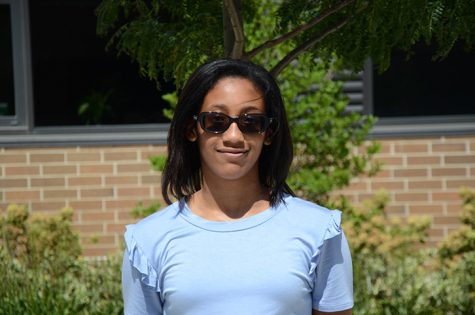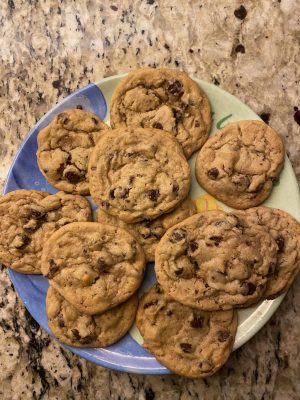Controversial books in classes
John Lofton ’19 holds the book “Athletic Shorts Six Short Stories” by Chris Crutcher. “The kids were the problem. The teacher was kind of just there.” John Lofton said. Lofton was one of the students who were offended by the book in class.
April 24, 2017
Students have expressed concern about books they are reading in language arts courses. Specifically in literature, the content can become intense, sometimes because of words used to depict races of people . “We can’t expect literature to please everyone,” language arts teacher Ed Walker said. “I think it is good that authors explore these topics.”
There are different reasons why parents would want their kids not to read certain books, or get them banned completely. Sometimes kids are uncomfortable with reading certain material themselves. “After we read this book (“The Telephone Man”), I looked it up online, and every website said do not read this in school,” Jaden Neely ’19 said. “The only sites that commended it was a white supremacist cite.”
In a language arts class, Jaden Neely read the short story “The Telephone Man” by Chris Crutcher in the book “Athletic Shorts.” The book is about a kid in a diverse school who is bullied for wearing telephone equipment around himself, but a black kid comes to his aid. He must get past his racist nature and accept help from the black kid. The book uses the “n” word frequently. “I didn’t get anything out of the book,” Neely said. “It just caused more pain than anything.”
The reason why students can be uncomfortable with reading specific books, can have to do with how things are handled in the classroom. “First, she (the teacher) read it out loud,” Neely said. “So, the teacher was saying the “n” word. Then the students had to read it out loud. You would think that there would be a little bit of hesitation, but it almost seemed like the white kids were excited to say it.”
Other students noticed different behaviors from the kids in the class while reading the book. “Every time the “n” word showed up, the white kids stared at me,” John Lofton ’19 said. “I think the school board was trying to shed light on racism, but they screwed it up and just caused more controversy.”
The books for Johnston must be approved by Academic Affairs, a committee comprised of three of the seven school board members. “We just recommend titles,” language arts teacher Taelar Hillyer said. “All I know right now is that we are looking at getting new materials. The people in the district office decide and look at the titles and then it goes through Academic Affairs.”
Even though the teachers rarely pick the books, some are still unhappy with the content that ends up in the classroom. “Anything that doesn’t include such harsh language would have been better,” Loften said.
Some teachers talk about the controversy in the books, and what might be offensive. “I probably won’t use “The Telphone Man” next year,” Hillyer said. “High school is just a tough time in general. Personally, I have never chosen a book on my own to teach. Usually the school I go to teach at already has books already decided.”
There are still other topics that will turn students away from certain books. “Usually it is language and sex,” librarian Ruth Thoreson said. “Also there is witchcraft, other religions being portrayed, but usually it is going to be sex and language. Maybe drug use.”
If a book does make a parent or student uncomfortable, they may approach the school board with their concerns. “We have a reconsideration committee,” Thoreson said. “If you have a complaint about a book there is a form you have to fill out. You have to say why you object and what could be put in its place. Usually, when people hit that form it’s more work than they want to do. So, they just stop.”





